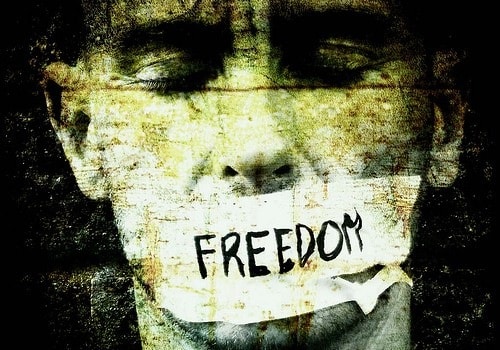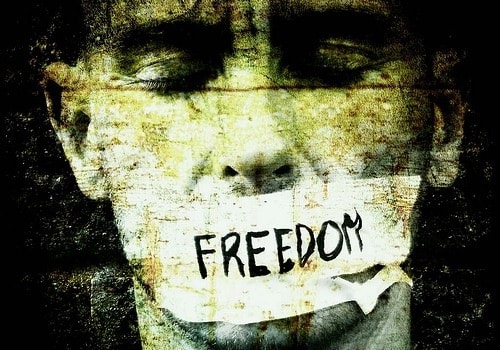In the aftermath of another tragic shooting at another synagogue, Israel’s Ambassador to the United Nations Danny Danon has again called for the criminalization of antisemitic speech. I have previously written about such international efforts to criminalize speech, including a proposal supported by the Obama Administration. The implications of such laws for free speech are easy to dismiss amidst the sorrow of another attack. However, the free speech community must remain firm that free speech is not the cause of hate, it is solution to hate.
Danon declared “The time for talking and having a conversation is over. What Israel and the Jewish community around the world demand is action – and now.”
Over the course of the last 50 years, the French, English and Germans have waged an open war on free speech by criminalizing speech deemed insulting, harassing or intimidating. We have previously discussed the alarming rollback on free speech rights in the West, (here and here and here and here and here and here and here) and here and here and here and here and here and here and here and here and here and here). There are encroachments appearing in the United States, particularly on college campuses. Notably, the media celebrated the speech of French President Emmanuel Macron before Congress where he called on the United States to follow the model of Europe on hate speech.
Danon argues that “Until it becomes criminal, this bigotry will persist; it will fester. It is only a matter of time until it erupts again in violence and bloodshed.”
The cause-and-effect relationship between speech and violence is increasingly claimed by those who want to criminalize speech. The effort of Muslim countries to create an international blasphemy law is an example of how new calls for censorship and regulation of speech is being repackaged. We have seen how these laws create insatiable appetites for greater and greater speech criminalization. These calls are the strongest after violent attacks when defending free speech can be easily misconstrued as a lack of sympathy or concern for the victims of hate. Politicians often seek responses to tragedies and limiting rights like speech can be remarkably easy. After all, free speech is an abstraction when an attack is a real and traumatic fact.
I readily admit to following the classic liberal view of free speech. The solution to bad speech — even hateful speech — to more speech. It is free speech that allows people of conscience to contest the flawed and hateful ideas of bigots. Germany has proven the fallacy of changing minds through threatened prosecution. While I am certainly sympathetic to the Germans in seeking to end the scourge of fascism, I have long been a critic of the German laws prohibiting certain symbols and phrases, I view it as not just a violation of free speech but a futile effort to stamp but extremism by barring certain symbols. Instead, extremists have rallied around an underground culture and embraced symbols that closely resemble those banned by the government. I fail to see how arresting a man for a Hitler ringtone is achieving a meaningful level of deterrence, even if you ignore the free speech implications.
Ambassador Danon is right that we must all fight the scourge of antisemitism and recognize its rise around the world. The disagreement is only with the means used to achieve that worthy end. Criminalizing speech has never produced any results other than fostering even greater speech criminalization.
Reprinted with permission from JonathanTurley.org.


